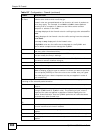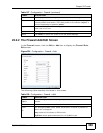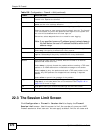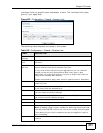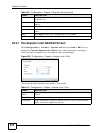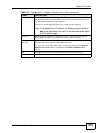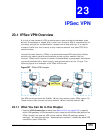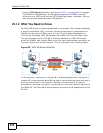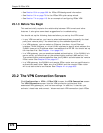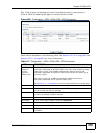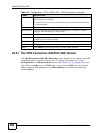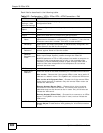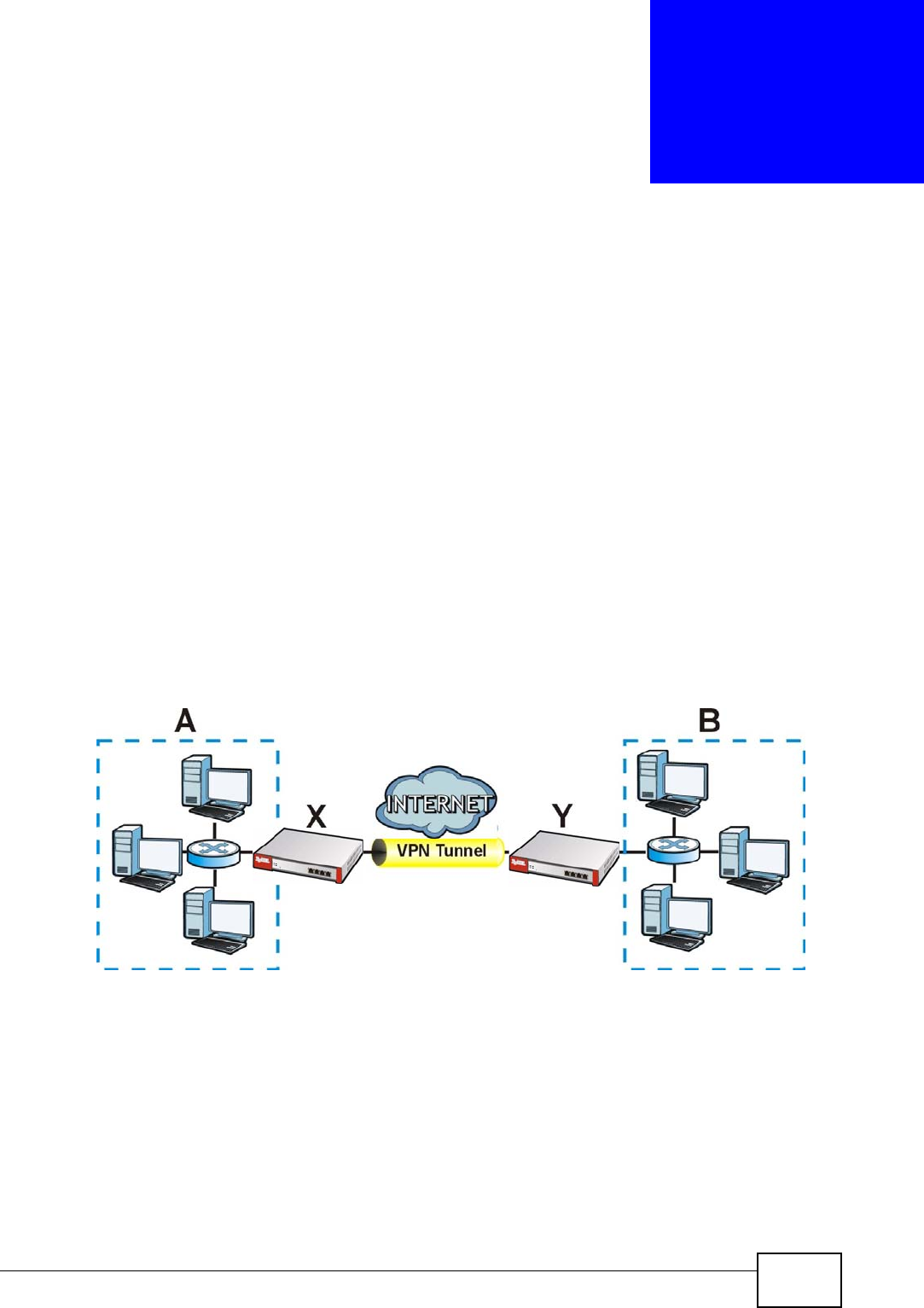
ZyWALL USG 50 User’s Guide
375
CHAPTER 23
IPSec VPN
23.1 IPSec VPN Overview
A virtual private network (VPN) provides secure communications between sites
without the expense of leased site-to-site lines. A secure VPN is a combination of
tunneling, encryption, authentication, access control and auditing. It is used to
transport traffic over the Internet or any insecure network that uses TCP/IP for
communication.
Internet Protocol Security (IPSec) is a standards-based VPN that offers flexible
solutions for secure data communications across a public network like the
Internet. IPSec is built around a number of standardized cryptographic techniques
to provide confidentiality, data integrity and authentication at the IP layer. The
following figure is an example of an IPSec VPN tunnel.
Figure 227 IPSec VPN Example
The VPN tunnel connects the ZyWALL (X) and the remote (peer) IPSec router (Y).
These routers then connect the local network (A) and remote network (B).
23.1.1 What You Can Do in this Chapter
•Use the VPN Connection screens (see Section 23.2 on page 378) to specify
which VPN gateway a VPN connection policy uses and which devices (behind the
IPSec routers) can use the VPN tunnel and the IPSec SA settings (phase 2
settings). You can also activate / deactivate and connect / disconnect each VPN
connection (each IPSec SA).




